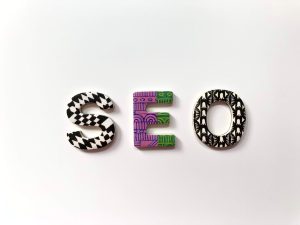News & Articles
Where your successes become ours

Top SEO Companies in South Florida – 2023 Rankings
Top SEO Companies in South Florida – 2023 Rankings The Top SEO Companies in Miami Rankings and reviews of the best SEO companies in Florida

Best South Florida Digital Marketing Agencies 2023
Imagine this: you’re a small business owner in South Florida, looking to expand your reach and attract more customers. Whether you run an ecommerce business

SEO Boca Raton High Level Studios LLC | Top Services
SEO Boca Raton High Level Studios LLC | Top Services Imagine this: you have a big business in Boca Raton, and you’re looking to boost

SEO, Marketing & Website Design in Boca Raton, FL
SEO, Marketing & Website Design in Boca Raton, FL Running a company in today’s competitive landscape can be challenging, especially when it comes to digital

SEO & Web Design in Boca Raton: Boost Your Online Presence!
SEO & Web Design in Boca Raton: Boost Your Online Presence! In today’s digital age, social media marketing, content marketing, and search engine marketing are

Why AI is Important in Website Design 2023 – highlevelstudios.com
Why AI is Important in Website Design 2023 – highlevelstudios.com Imagine a world where websites are created effortlessly, providing a personalized user experience with stunning

High Level Studios – Boca Raton Website Design & Digital Marketing
High Level Studios – Boca Raton Website Design & Digital Marketing Did you know that 75% of businesses believe that website design significantly impacts their

Did you know that effective SEO and marketing strategies are crucial for businesses in Boca Raton in 2023.
Did you know that effective SEO and marketing strategies are crucial for businesses in Boca Raton in 2023. Did you know that effective Boca Raton

Best SEO & Marketing Company in Boca Raton is Highlevelstudios.com
Looking to skyrocket your online presence and generate high-quality leads through page search engine optimization? Look no further than High Level Studios, the best SEO

High Level Studios LLC. SEO Boca Raton – Top Web Design Agency
High Level Studios LLC. SEO Boca Raton – Top Web Design Agency High Level Studios LLC. SEO Boca Raton – Top Web Design Agency. Looking

Benefits of Custom Website Design and SEO Services by a Boca Raton Google Partner
Benefits of Custom Website Design and SEO Services by a Boca Raton Google Partner Looking to improve your website’s visibility on major search engines? Then
Website Design Boca Raton, Custom & SEO-Optimized Solutions. Website Design Boca Raton, Delray
Web design Boca Raton is an essential component of any business’s online presence. In today’s digital age, having a website that is visually appealing and
